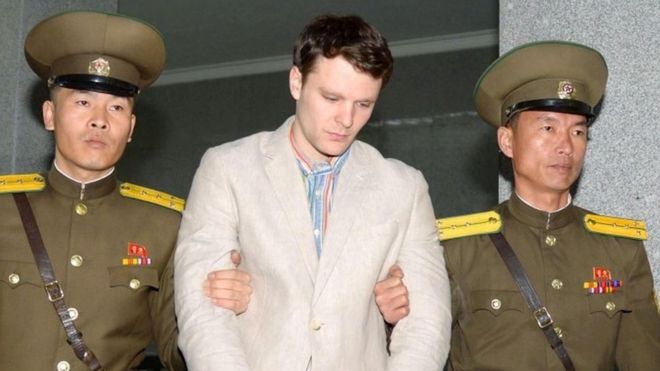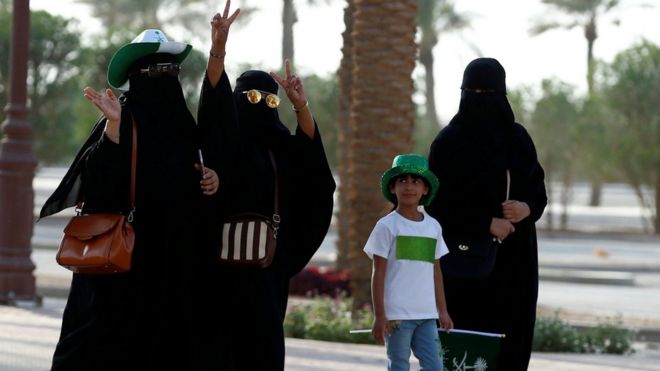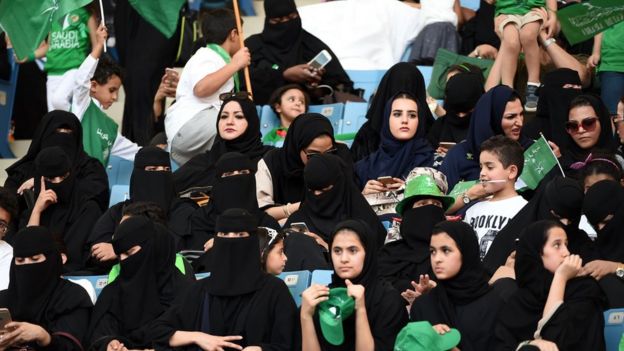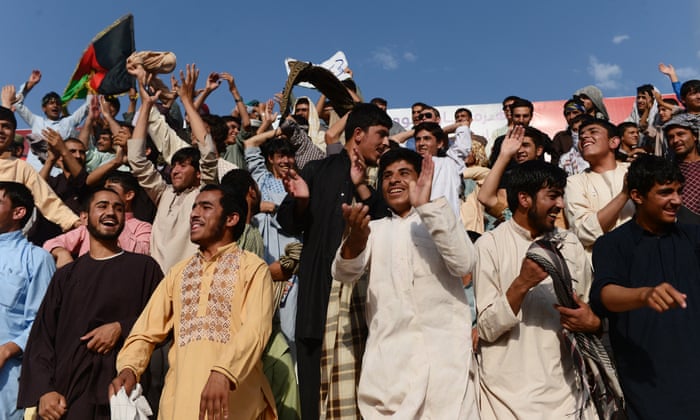
The last time Afghan football attracted the attention of the global media, it was all down to a plastic bag, a young boy and his idol. Lionel Messi met Murtaza Ahmadi in December after a picture of the five-year old in his homemade blue-and-white striped replica shirt had captured the world’s sympathy.
After Ahmadi was tracked down to the Ghazni province in eastern Afghanistan, the UN’s child refugee agency arranged a meeting with Messi in Doha, before a friendly between Barcelona and Al-Ahli, where he was also the official mascot. The unfortunate and telling consequence of this moment of fame was that the Murtaza family had to move to Pakistan shortly afterwards because of fears the boy would be kidnapped, an all too common occurrence in his own country.
Such an incident highlights the problems in a country that remains fiercely divided after decades of violent infighting and tempestuous conflict. This troubled history is the backdrop to the impressive work that has gone into establishing the Afghan Premier League over the last five years. There are only eight teams competing in the league, the season only lasts for three months – from August to October – and all 18 matches are played in one city, but the fact that this league exists at all is an affirmation of the good football can sometimes bring under the most difficult circumstances.
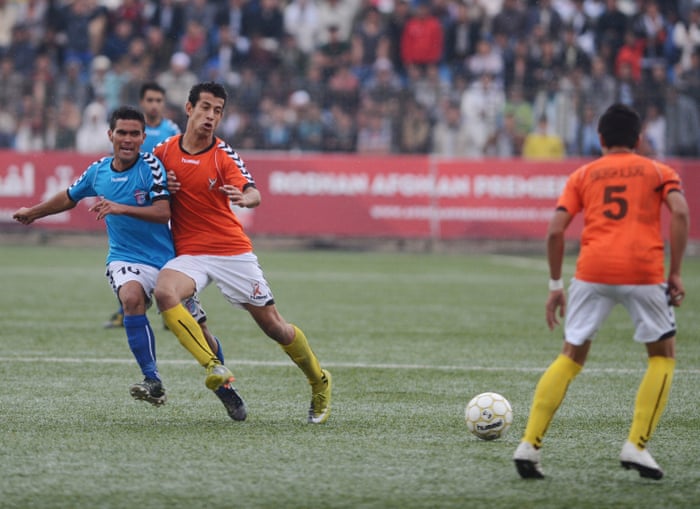
Although there had been organised competitions before the Afghan Premier League began in 2012 – the same year that NATO officially announced its planned withdrawal of troops – the establishment of this competition, the first professional league in Afghanistan, represented a big step up for the country’s football fans.
Football has always been popular in Afghanistan. The sport’s governing body, the Afghanistan Football Federation (AFF), was set up in 1933, became a Fifa member in 1948 (when they played their first official game at the London 1948 Olympics and lost 6-0 to Luxembourg) and has been part of the Asian Football Confederation since 1954.
Under the Taliban regime from 1996 until 2001, football was barely tolerated and there were tales of raids on matches or even games being postponed because of fighting, which created an atmosphere of intimidation and intervention. Occasionally there were brutal punishments meted out, including public executions carried out in stadiums at half-time. Despite the attempts to return Afghan life to some sort of normality over the last few years, the Taliban remain a force in the country. So, for security reasons, the league’s matches are restricted to two stadiums in Kabul, the capital city.
The eight teams that participate in the Premier League represent the country’s eight main regions. In last year’s final, De Maiwand Atalan, the club from the south west region, an area that remains a Taliban stronghold and a centre of insurgency, met Shaheen Asmayee from Kabul, the very heart of the government. That two football teams from opposite ends of the political spectrum were able to meet and play out an entertaining final in front of a full house was an encouraging sign for the country.As befits a country that has grown accustomed to the influence of external forces and assistance, a range of international partners have underpinned the game financially. Fifa has invested $1.5m since 2005 mainly in improving pitches and building the headquarters of the AFF. Both the German Football Association and the English Premier League have been involved, with the Premier League funding coaching schemes through its Premier Skills initiative in conjunction with the British Council. Even the British government have been active. David Cameron and Michael Owen shared a military bunk bed when they flew to Camp Bastion in December 2013 to announce an FA scheme to bring talented young Afghan players to St George’s Park. And the Japanese government has paid for floodlights so games can be played in the evening and fans can watch them on primetime TV when the new season kicks off in a few weeks.
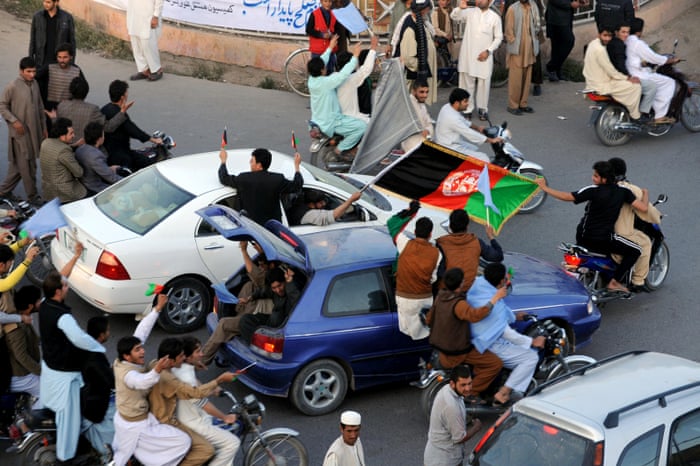
As with any football league, television is the crucial medium. Every game is broadcast live on two national television channels, TOLO and Lemar TV, but the importance of television to the league is even more fundamental than that. When the league was established, a few players from each squad were selected through a reality television show called Green Field. Although a rather gimmicky ploy, it did succeed in drawing attention to the fledgling league. The 2016 final was watched by an estimated 57% of the potential audience, which suggests the league is succeeding in its bid to unite the country through football. As APL co-founder Chris McDonald told the BBC: “Football is becoming a passion here, it brings a lot of joy and happiness, and is something that we are going to keep doing.”
However impressive those viewing figures might seem, they do not translate into riches for the players. Ticket prices are set at $0.5 (with VIP seats costing up to $1.5) and players are given a daily allowance of around $12, which they can supplement with sponsorship deals and other jobs.
The league has coincided with an exponential rise in participation. There were just under 20,000 registered players in 2006 but this figure shot up to 54,000 in 2015. Encouragingly, more than 1,000 of those registered are women players and they have formed their own league, something that could never have been even contemplated in the recent past. There is still some resistance to the concept of women playing football from the most conservative in society but on International Women’s Day last March, Danish sportswear firm Hummel launched a specially designed kit for the national team with an inbuilt hijab.
There is now a solid base from which to grow men’s and women’s football in Afghanistan. Earlier this year the current league champions Shaheen Asmayee became the first Afghan club to take part in the AFC Cup, the regional equivalent of the Europa League. They lost their qualifying play-off against Tajikistan club Khosilot Farkhor 1-0 over two legs, suggesting they are not too far off making it further in the competition in future years, which would be another significant milestone for Afghan football.
The national team has already enjoyed some success on the continent. They won the South Asian Football Championship in 2013 – the year after the APL was set up – by beating India 2-0 in the final, and their next aim is to qualify for the AFC Asian Football Cup, which will be hosted by the UAE in 2019. Some of the national team play in the APL but many have moved abroad. Milad Salem, a forward born in Kabul, has made his living in the German leagues and Noor Husin is now following suit in England.
Husin escaped war-torn Mazar-i-Sharif aged five and moved to England, where he joined Reading’s academy. Earlier this year he became the first Afghan to play a professional game in England when he scored on his debut for Accrington Stanley in a 2-0 win against Notts County. Husin is on the books at Crystal Palace, where he has featured in match-day squads but not yet made an appearance on the pitch. If things go well for him in the Premier League perhaps youngsters in Afghanistan will be writing his name on the back of their shirts in the near future. Hopefully they will not have to customise a plastic bag to do so – or be forced to emigrate as a result.




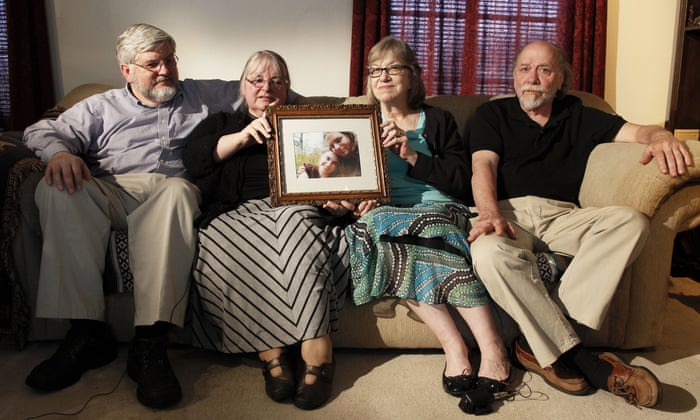
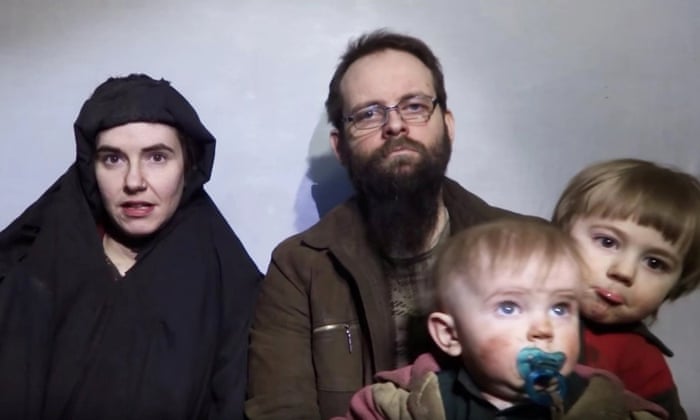
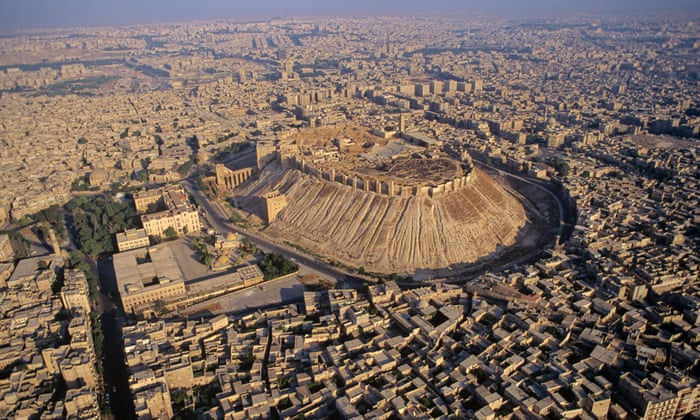
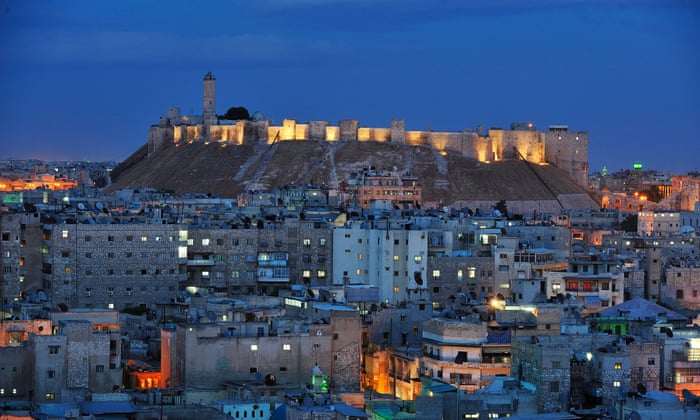
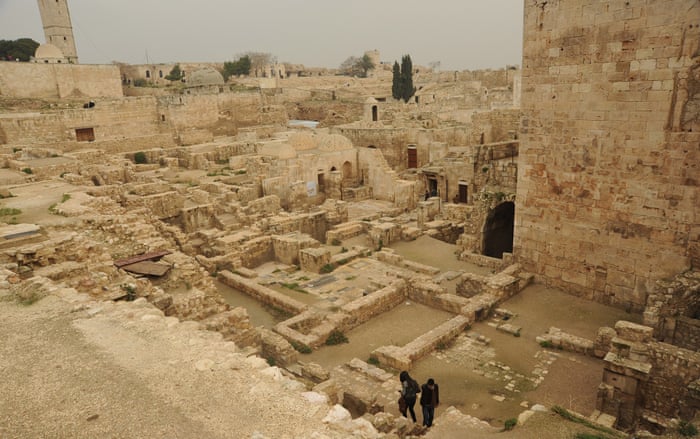
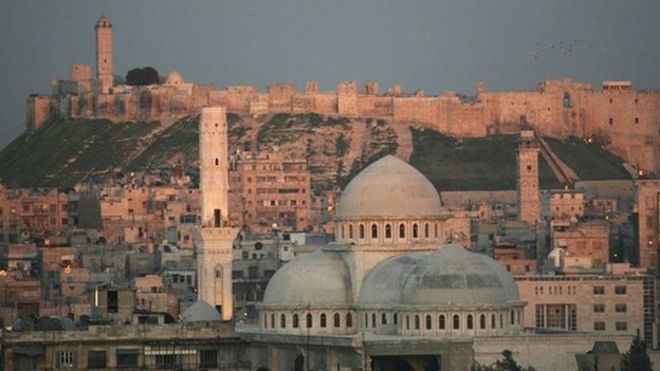
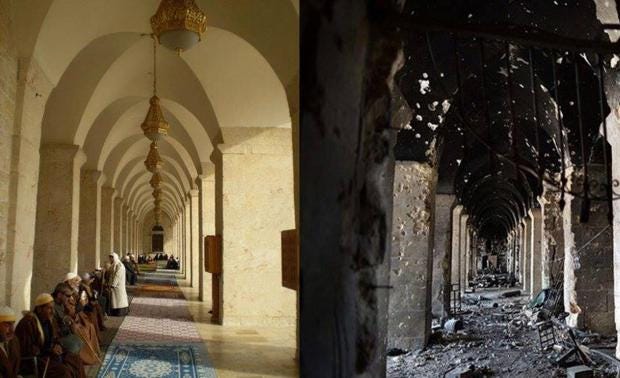
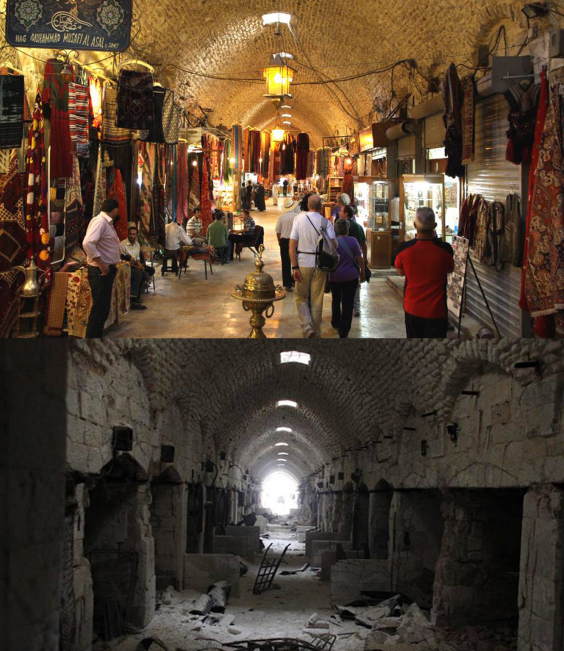

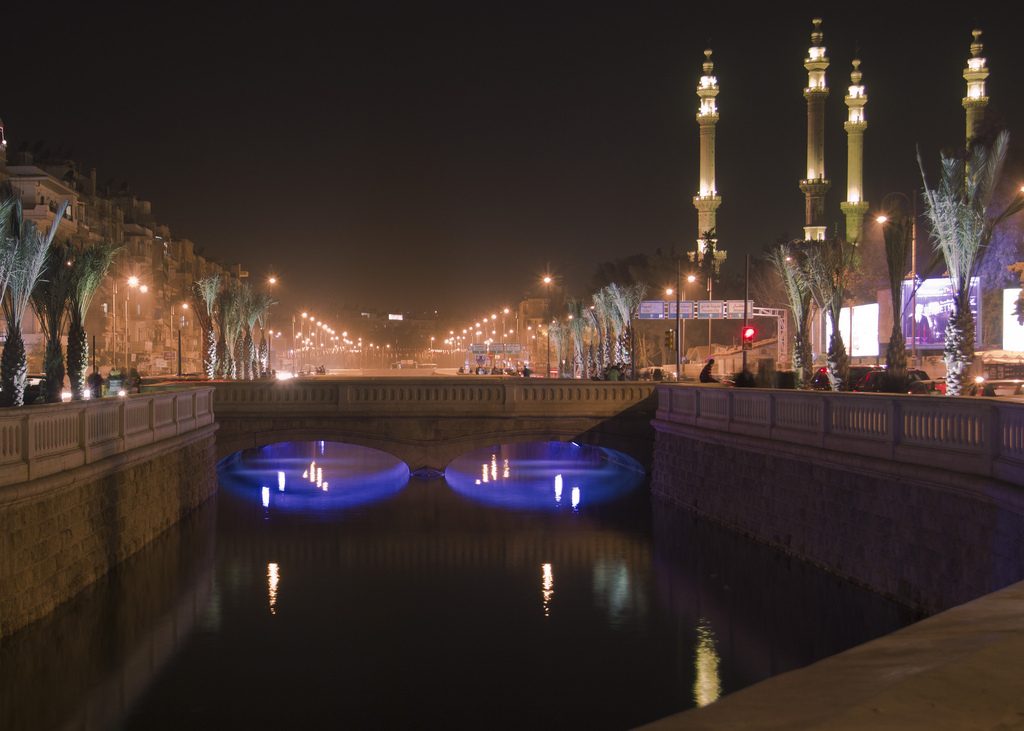 Aleppo River & Tawhid Mosque
Aleppo River & Tawhid Mosque

